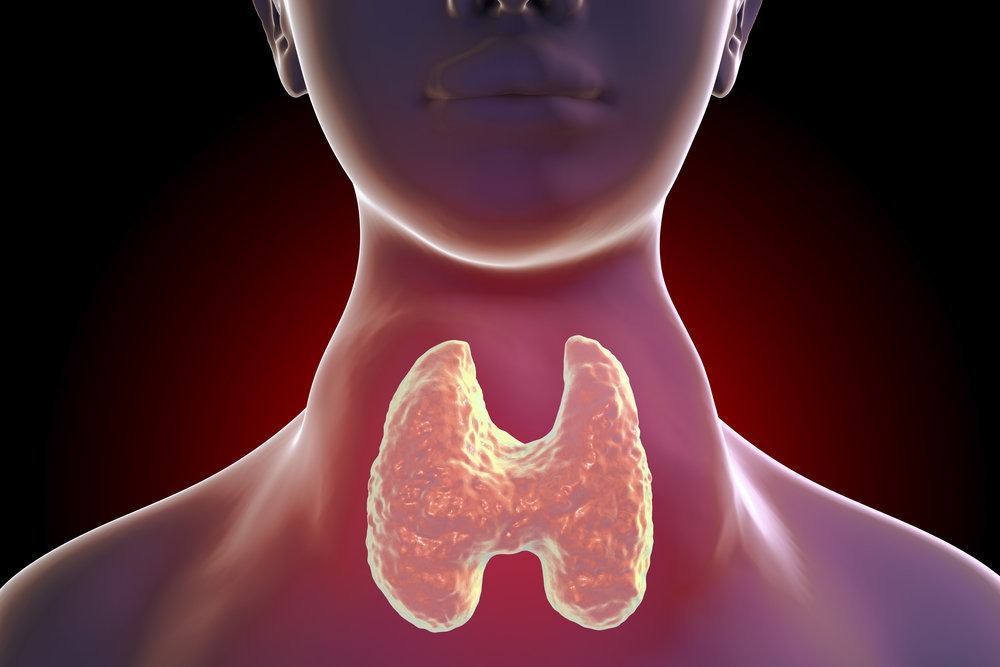Thyroid Health
The thyroid is a small, butterfly-shaped gland located in the neck that produces hormones (T3 and T4), which are essential for regulating metabolism, energy use, and overall body functions. Disorders of the thyroid can significantly impact health, and the most common ones include hypothyroidism (underactive thyroid) and hyperthyroidism (overactive thyroid).

Common Thyroid Disorders:
Hypothyroidism (Underactive Thyroid):
- Symptoms: Fatigue, weight gain, depression, dry skin, sensitivity to cold, constipation.
- Cause: The thyroid does not produce enough thyroid hormones, slowing down metabolism.
Hyperthyroidism (Overactive Thyroid):
- Symptoms: Weight loss, rapid heartbeat, anxiety, insomnia, heat intolerance, muscle weakness.
- Cause: The thyroid produces excess thyroid hormones, speeding up metabolism.
Thyroid Nodules:
- Small growths on the thyroid gland that may be benign or, rarely, cancerous.
Goiter:
- An enlargement of the thyroid, often due to iodine deficiency or thyroid imbalances.
Thyroid Cancer:
- A rare form of cancer affecting the thyroid cells, often with a good prognosis if diagnosed early.
Diagnosis and Treatment:
- Diagnosis: Thyroid disorders are commonly diagnosed through blood tests that measure levels of thyroid hormones (T3, T4) and thyroid-stimulating hormone (TSH).
- Treatment:
- Hypothyroidism: Managed with thyroid hormone replacement therapy (levothyroxine).
- Hyperthyroidism: Treated with medications (e.g., methimazole), radioactive iodine, or surgery to remove part of the thyroid.
- Thyroid nodules or goiter: Often monitored with ultrasound or treated surgically if necessary.
Diet for Thyroid Health:
Diet can play a significant role in supporting thyroid function, providing essential nutrients while avoiding certain foods that may interfere with thyroid health:
For Hypothyroidism (Underactive Thyroid):
- Iodine: Essential for thyroid hormone production. Foods: iodized salt, seafood, dairy, eggs.
- Selenium: Supports thyroid function. Foods: Brazil nuts, tuna, turkey, eggs.
- Zinc: Supports thyroid hormone synthesis. Foods: shellfish, meat, legumes.
- Vitamin D: Regulates thyroid function. Foods: fortified foods, fatty fish, egg yolks.
- Tyrosine: An amino acid necessary for thyroid hormone production. Foods: fish, chicken, dairy, soy products.
For Hyperthyroidism (Overactive Thyroid):
- Limit Iodine: Excess iodine can exacerbate hyperthyroidism. Reduce intake of iodine-rich foods like seaweed and iodized salt.
- Cruciferous Vegetables: Broccoli, cabbage, and cauliflower can help reduce thyroid hormone production by blocking iodine uptake. They should be consumed in moderation.
- Antioxidants: Foods rich in antioxidants can help counteract oxidative stress associated with thyroid dysfunction. Foods: berries, leafy greens, nuts.
General Dietary Guidelines:
- Gluten-Free Diet: Some individuals with thyroid conditions, particularly autoimmune thyroid disorders like Hashimoto’s disease, may benefit from a gluten-free diet.
- Soy: Excessive soy intake may interfere with thyroid function, especially for those with hypothyroidism. Moderation is recommended.
- Whole Foods: Focus on whole, nutrient-dense foods and avoid processed, refined foods that can exacerbate thyroid symptoms.
Gut Health:
- Probiotics and Prebiotics: Supporting gut health with probiotics (e.g., yogurt, kefir) and prebiotics (e.g., garlic, onions) may improve thyroid function, particularly in individuals with autoimmune thyroid diseases.
Conclusion:
A balanced, nutrient-rich diet tailored to your specific thyroid condition can significantly support thyroid health. For hypothyroidism, focus on iodine, selenium, zinc, and tyrosine, while for hyperthyroidism, reduce iodine and increase cruciferous vegetables and antioxidants. Regular monitoring and personalized care are essential to manage thyroid disorders effectively.

